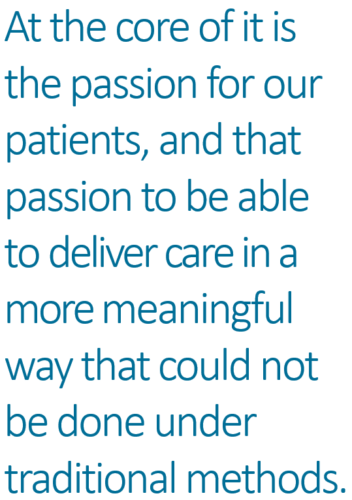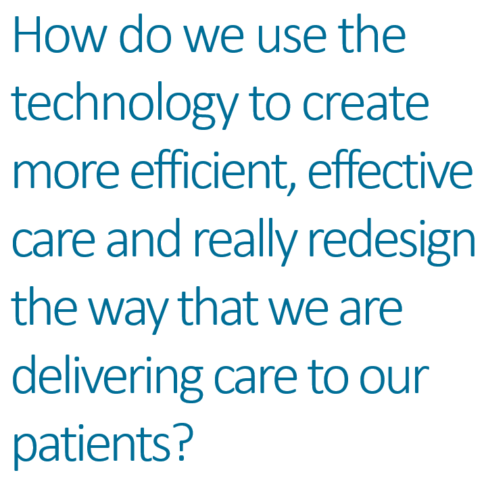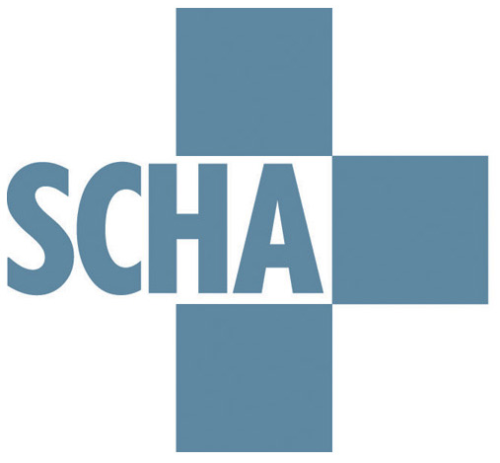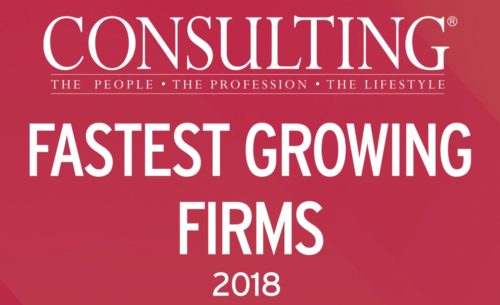In our prior posts we have looked at the considerations when resuming ambulatory services [Link] and inpatient, elective surgeries [Link]. This post will focus on the telehealth response of one system, and what the future might hold.
Background
Although COVID cases are surging in various parts of the country, there will be a point in time where the COVID threat is minimized and no longer a substantial threat to the operating environments of health systems. However, even when COVID is contained, the lasting impact of the pandemic will have significantly changed the healthcare environment. Most importantly, we believe that the pandemic has finally created enough momentum around an idea that has long been promised in healthcare circles – telehealth.
In this part of the series, Senior Consultant Kingsley Mooney interviewed Shawn Valenta, Administrator of Telehealth at the Medical University of South Carolina [MUSC], to better understand how MUSC was able to build such a successful telehealth program, what innovation has spurred from Covid-19, and where they see telehealth going in the future.
In his role, Valenta oversees the strategic initiatives and operations of the MUSC Center for Telehealth. The Center focuses on the development and expansion of telehealth at MUSC, bringing together resources and supporting a variety of programs. It is one of two federally recognized National Telehealth Centers of Excellence in the country. With over 17 years of clinical and health care leadership experience, Valenta has many valuable insights to share.
Read or watch the conversation below learn more about his recommendations to organizations who are looking to develop a telehealth strategy that advances care beyond traditional barriers.
Interview
Conversation has been edited for length and clarity
Kingsley: Shawn, it is so nice to see you! Thank you so much for joining me today to just share a little bit more about what you and your colleagues in the Center for Telehealth at MUSC are currently doing and how you are planning for the future.
Shawn: Absolutely, it is good to talk with you, Kingsley.
Kingsley: So, what you, Dr. McElligott, Dr. King, Dr. Ford, and the entire MUSC Telehealth team have been able to accomplish is extremely impressive. Can you tell us what key factors enabled you to build a program like this?

Shawn: Well first, thank you for that. I think at the core of it –you mentioned, Dr. McElligott, Dr. Ford, Dr. King, many others on our team – at the core of it is the passion for our patients, and that passion to be able to deliver care in a more meaningful way that could not be done under traditional methods. So that is really at the core of our center. Our mission statement is telehealth for efficient, effective care, so, we are always looking to figure out how we can do things in a more efficient, effective way.
From that development of telehealth services, I would say there is an additional layer of perfecting our process. One of the things that has helped catalyze our work is something we call TSIM – Telehealth Service Implementation Model. What that means is having a phased approach, a guiding framework on how to create telehealth services. So, one, making sure that you have a clear, defined scope – a strategy of the service and what problem you are trying to solve. It is very project management oriented. Then you get into the development phase of navigating all the complexities of telehealth, when you are thinking about electronic health, records billing compliance rules, legal, all those different elements. Then, once that is built, going into some smooth implementation and into normal operations.
So by continually perfecting our process It allows us to not only create telehealth services that are efficient and effective, but have a process to be able to do that and create services that scale that meet the needs of our community.
Kingsley: That’s great. I think having that structure around it really enables you to build upon what you currently have and then grow to meet those needs of the community.
So, I don’t want to ignore the elephant in the room. I know that while COVID has been a very challenging and horrible pandemic that we are still experiencing and addressing today, we have seen it instigate rapid telehealth transformation. How has your team at MUSC leveraged this opportunity to really grow and innovate?
Shawn: Yeah, it is a good question. It is extremely challenging for a lot of the teams and our communities, but it is an opportunity for telehealth, and even other industries. I saw Mark Cuban on TV this past month and he really talked about how in these times when the market is disrupted you should be looking at innovative ways to reach your clients. For us it is reaching our patients and thinking of innovative ways to deliver the care during these times.
We have always been doing telehealth services for hospitals and schools and different things like that, but where we have really had some great success with COVID was standing up ambulatory telehealth. In South Carolina we really didn’t have any type of payment system for ambulatory care, so we didn’t have a full-fledged strategy on that.
We had some processes in place to be able to do things – physicians did some under grants and things like that – but we really had to stand up and flip our ambulatory efforts completely virtual. This is an effort of a lot of different folks – Information solutions, ambulatory care, a lot of the physician champions stepping up – and the teams have had significant success.
There is some good work being done by the Commonwealth Fund. They’ve been putting out a lot of different papers on this, and one of the things they showed was nationally at the peak health systems were able to get, on average, up to 14% of their baseline ambulatory visits virtual. MUSC was actually able to get up to 44%, so more than triple the national average. Now, of course, we had the infrastructure and the processes to be able to pull that out in a rather fast motion.
Those are some of the things that a lot of other institutions are going to need, that type of process and physician leaders to really be able to step up and engage their team knowing that it’s not going to be easy. There is a lot of change management that goes on with that, but having those physician leaders to be able to liaison with their departments and divisions back and forth, identify the problems, work with us to find some reasonable solutions and then put them in place in a rapid manner. It’s worthwhile for MUSC and I look forward to seeing what happens from here.
Kingsley: Yeah, I think that it really is a time where people are open to that change, so might as well embrace that and move forward with it.
Shawn: Yeah, absolutely.
Kingsley: One last question. As others continue to invest in telehealth, or maybe they’re just starting on this journey for their institution, what best practices or lessons learned do you have to share with them?
Shawn: A couple of things I would probably say. First, one of our mottos in the center is think technology last. Sometimes people will come to me and say “Hey, we got this cool opportunity with this new gadget of some sort, let’s just, let’s do something with this,” and, it’s like, well, what’s our strategy? What clinical service are we trying to apply this to? What problem are we trying to solve? When those questions cannot be answered, that is a problem. You are already setting yourself up for failure. So really, think technology last.

Think about the challenges of your health system in general, and not even with telehealth. Is your challenge around access? Is it around patient experience? Is it around readmission issues, or coverage, or whatever may be? You will likely find a telehealth use case that has been done successfully, that then you can learn from and figure out how that may impact your organization.
Then the second thing I would say goes back to our Center for Telehealth mission statement of telehealth for efficient,effective care. Dr. Jimmy McElligott ingrained this in me early. Some people, some who have been in telehealth for 20 plus years, speak at conferences and say telehealth is all about replicating care at a distance.
I have a problem with that because we know the system is broken, and if we just use this technology to replicate a broken system we’re completely failing everyone who’s investing their time and money in what we’re doing. So, how can we use the technology, knowing that we’ve got patients with more chronic conditions as the baby boomers get up in age, knowing that we have provider shortages, knowing that we have increased healthcare spending across our country.
How do we use the technology to create more efficient, effective care, and really redesign the way that we are delivering care to our patients?
Kingsley: I think those are two great points, and I am sure that many organizations can learn from what you and your team have been able to do at MUSC Center for Telehealth.
Thank you so much for your time today. I’m sure that we will catch up in the coming weeks to see how all the work has progressed at MUSC, and maybe some other new platforms that you’re exploring as we get through this period of COVID and beyond. Thanks so much today for your time!
Shawn: Alright, thank you Kingsley!
Conclusion
Rapid adoption and support across the industry suggests that telehealth is here to stay. Given this, systems will need to revisit their strategic plans, and update them to ensure that they have appropriately accounted for this large-scale disruptor.
If you or your organization need support with incorporating telehealth into your strategic plan, please reach out to us here.
___
Note: Prior to re-opening, KCG encourages each health system to ensure they are following precautions that aim to prevent further transmission of COVID-19 outlined by CMS, the American Medical Association [AMA], and other medical professional organizations. Clearly set policies and agreement from stakeholders across the health system will be foundational to pursuing re-opening activities and will ensure that the health system is a safe zone for all.







